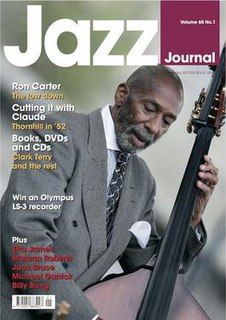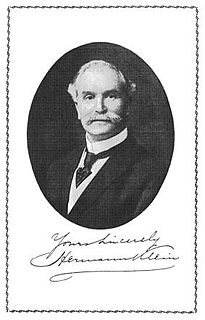Alun Morgan (24 February 1928 in Pontypridd, Wales – 11 November 2018) [1] was a British jazz critic and writer.

Pontypridd is both the county town of Rhondda Cynon Taf in Wales and a community. Often colloquially known as "Ponty", it is 12 miles (19 km) north of Cardiff.
Jazz is a music genre that originated in the African-American communities of New Orleans, United States, in the late 19th and early 20th centuries, and developed from roots in blues and ragtime. Jazz is seen by many as "America's classical music". Since the 1920s Jazz Age, jazz has become recognized as a major form of musical expression. It then emerged in the form of independent traditional and popular musical styles, all linked by the common bonds of African-American and European-American musical parentage with a performance orientation. Jazz is characterized by swing and blue notes, call and response vocals, polyrhythms and improvisation. Jazz has roots in West African cultural and musical expression, and in African-American music traditions including blues and ragtime, as well as European military band music. Intellectuals around the world have hailed jazz as "one of America's original art forms".
Morgan became interested in jazz as a teenager during World War II, and Charlie Parker became a significant influence on him in the late 1940s. Morgan began to write on jazz from the early 1950 for Melody Maker , Jazz Journal , Jazz Monthly and Gramophone , and for 20 years from 1969 a weekly jazz column in a local Kent newspaper. Over his writing career he completed liner notes for over 2,500 albums, initially for Vogue Records. From 1954 he contributed to music programmes for BBC Radio.

Charles Parker Jr., also known as Yardbird and Bird, was an American jazz saxophonist and composer.

Melody Maker was a British weekly music magazine, one of the world's earliest music weeklies, and—according to its publisher IPC Media—the earliest. It was founded in 1926, largely as a magazine for dance band musicians, by Leicester-born composer, publisher Lawrence Wright; the first editor was Edgar Jackson. In 2000 it was merged into "long-standing rival" New Musical Express.

Jazz Journal is a British jazz magazine established in 1946 by Sinclair Traill (1904–1981). It was originally published in London under the title Pick Up, which Traill founded as a locus for serious jazz criticism in Britain. In May 1948, Traill, using his own money, relaunched it as Jazz Journal. Traill, for the rest of his life, served as its editor-in-chief. Jazz Journal is Britain's longest enduring jazz magazine.
Morgan was the author of a book on modern jazz in England and the co-author of several books on jazz records. He lectured on jazz at the Guildhall School of Music and Drama and the Royal Academy of Music in London.

The Guildhall School of Music and Drama is an independent music and dramatic arts school which was founded in 1880 in London, England. Students can pursue courses in music, opera, drama and technical theatre arts.
The Royal Academy of Music in London, England, is the oldest conservatoire in the UK, founded in 1822 by John Fane and Nicolas-Charles Bochsa. It received its Royal Charter in 1830 from King George IV with the support of the first Duke of Wellington. It is one of the leading conservatoires in the UK, rated fourth in the Complete University Guide and third in the Guardian University Guide for 2018. Famous Academy alumni include Sir Simon Rattle, Sir Harrison Birtwistle, Sir Elton John and Annie Lennox.
In addition, until 1991 he was a full-time architect. Shortly after retiring from his other occupation, Morgan emigrated to Australia. [2]

An architect is a person who plans, designs and reviews the construction of buildings. To practice architecture means to provide services in connection with the design of buildings and the space within the site surrounding the buildings that have human occupancy or use as their principal purpose. Etymologically, architect derives from the Latin architectus, which derives from the Greek, i.e., chief builder.








